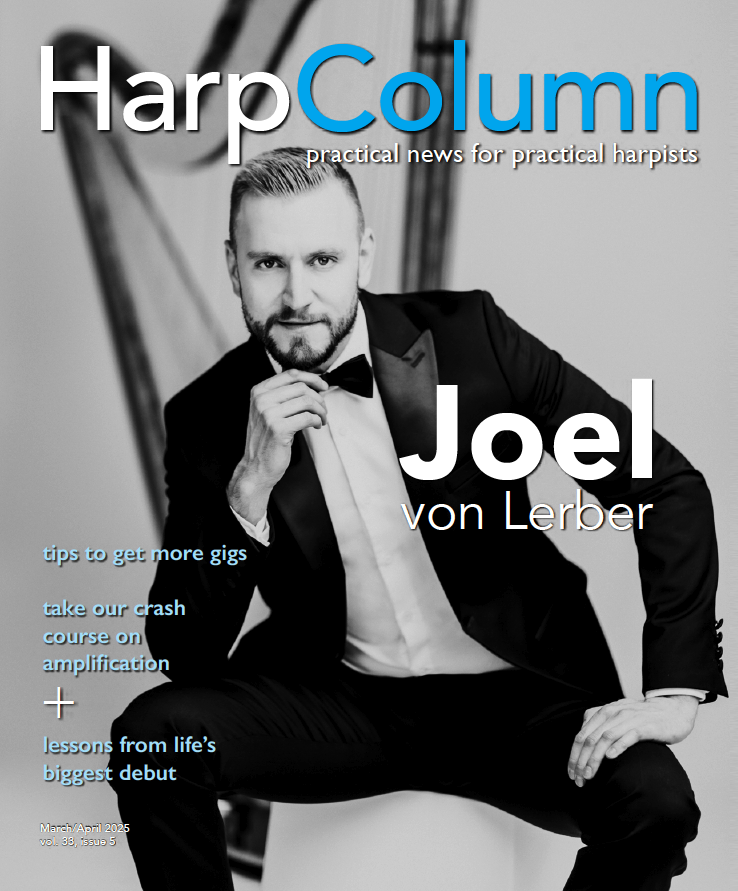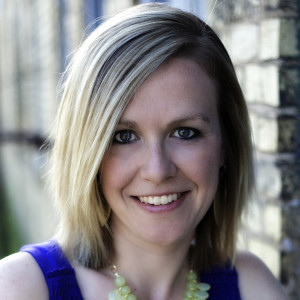One of the Harp Column interviews I look forward to most is the one we do with the winner of the International Harp Contest in Israel, which only comes around once every three years. It’s exciting to watch the best young harpists in the world gather and perform, giving us a glimpse into the future of classical harp playing. What I love about the interview with the winner is the insight it gives us into the path she took to the summit of harp competition.
…that’s why Petrovic is a superstar—she discovered opportunity where many would have only seen an obstacle
It doesn’t get any tougher than Israel. It’s the longest running and one of the most revered international competitions for our instrument, and it has produced a list of winners who are among the foremost harpists of the last half century (see the list of winners on pg. 32). Winning Israel doesn’t happen by chance. You don’t just roll out of bed a few months, or even a few years before the event and say, “I’m going to do the Israel competition.” The harpists who compete begin preparing years before they even know what they are preparing for.
I admire any harpist who even makes it to the opening ceremonies in Israel, but my respect for the winner of the 2018 International Harp Contest in Israel, Lenka Petrovic, reached new heights after reading Sunita Staneslow’s interview with her (see “Serbian Star” on pg. 28).
In the limelight of winning one of the most prestigious competitions in the harp world, Petrovic is humble and grateful. She gives most of the credit for her success to her teachers. Asked how she thought winning this competition would help launch her career, Petrovic replied excitedly that the new harp she received as one of her prizes is a game-changer. Did you catch that? Petrovic won a prestigious international harp competition, and she has never owned a harp. From the time she started playing at age 8 until now, at age 23, Petrovic has never had her own instrument. While it’s not unprecedented for a harpist to win an international competition without owning an instrument, it makes Petrovic’s accomplishment that much more impressive.
I have used much weaker excuses than not having an instrument for why I can’t play something—my harp room is too cold to practice in at night, I have a blister on my thumb, I need to catch up on my Netflix shows. Not owning a harp was never an obstacle in Petrovic’s eyes. She explained that she would arrive at her public school early and stay late into the night to get practice time on one of the school’s two old Russian harps. When she went to college, the instruments were much better, but she still had to share practice time with the school’s other harp students.
When I read this, I thought, “What a hardship to overcome.” But that’s not how Petrovic sees it. “I feel very lucky to have had this opportunity,” she says in the interview. “I was able to study all these years without owning my own harp.” And that’s why Petrovic is a superstar—she discovered opportunity where many would have only seen an obstacle.
Marina Fradin, also a finalist in Israel, gives us another lesson in perspective. Fradin, principal harpist with the Jerusalem Symphony, won third place as a new mother to a baby girl. Fradin, whose daughter turned 1 shortly after the competition, says learning she was pregnant after she began preparing for the competition was musically freeing. “All my priorities changed overnight,” she says. “I decided to compete for myself. I really took it on as my own personal challenge. I believe that this approach helped me compete.”
Rather than waiting for ideal circumstances to present themselves, both Petrovic and Fradin pursued their dreams by adapting to the situations at hand. You can’t help but believe that the paths they took to Israel this year will lead them to many more exciting opportunities. •
Alison Reese is editor of Harp Column. She is a freelance performer and teacher in West Michigan. You can email her at areese@harpcolumn.com.






